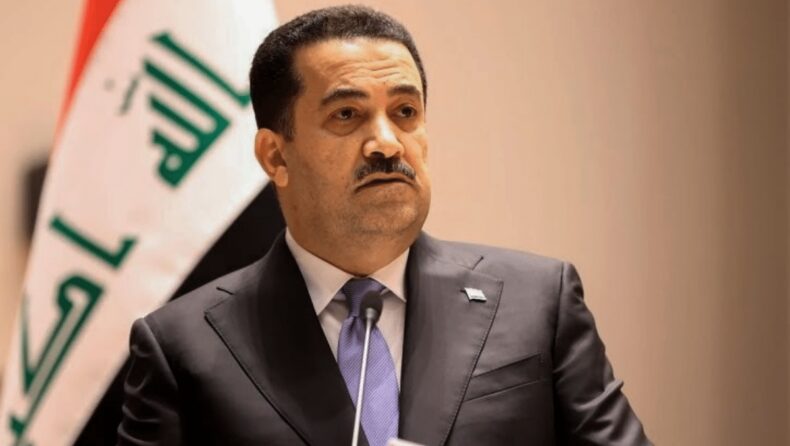A new government headed by Mohammed Shia al-Sudani will take office in Iraq following over a year of political deadlock.
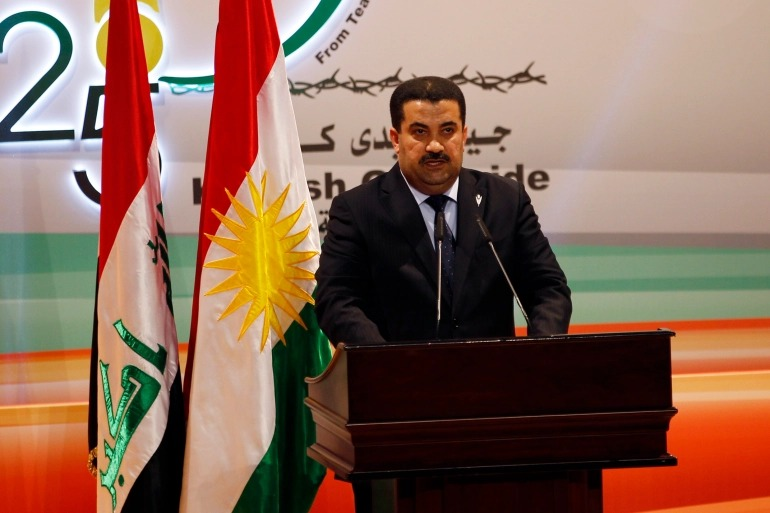
Iraq and the formation of the country’s new government
A new government was adopted by Iraqi parliamentarians following a year-long turmoil brought on by contested elections.
The new administration will be led by 52-year-old Prime Minister Mohammed Shia al-Sudani, who previously served as Iraq’s minister of labour and social affairs and human rights.
A majority of the 253 legislators present voted to designate 21 ministers, with the environment ministry and the construction and housing ministry still up for debate. The established cabinet lineup counts as a majority even though there are still two undecided nominations.
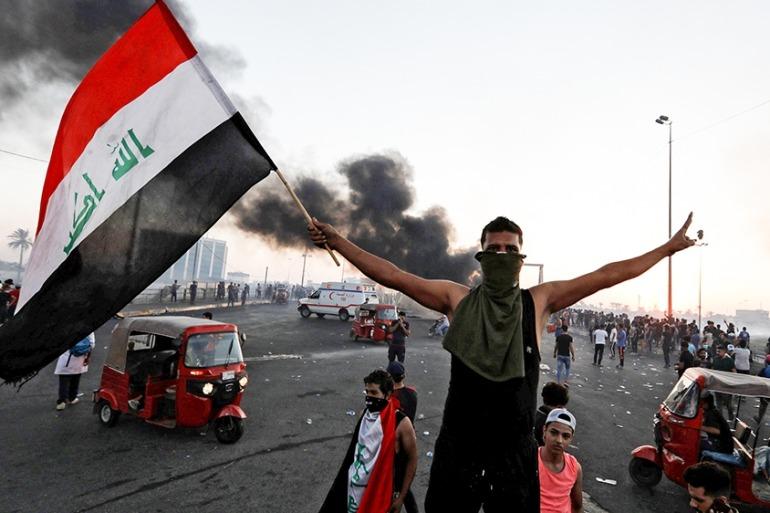
After months of conflict amongst important groups that paralysed political life, Al-Sudani was selected earlier this month to establish a new administration. He succeeded Mustafa al-Kadhimi, a former prime minister who had been in charge of a caretaker government after tens of thousands of anti-government protestors took to the streets in 2019 calling for jobs and the expulsion of the country’s ruling class.
Cleric Muqtada al-Sadr, Sudani’s opposition in Iraq’s Shia camp, declined to join the administration.
“Our ministerial team will shoulder the responsibility at this critical period, in which the world is witnessing tremendous political and economic changes and conflicts ”
The declaration read
The declaration occurred two days after lawmakers selected Abdul Latif Rashid as the country’s new leader. Rashid promptly appointed al-Sudani as prime minister to break the political impasse that had lasted for a year following the elections in October 2021.
“We stress our firm and clear refusal for any of our affiliates to participate … in this government formation.”
Mohammed Saleh al-Iraqi, an affiliate of al-Sadr, declared on Twitter.
The official for the Sadrist movement stated that the movement will not participate in any government headed by al-Sudani or “any other candidate from among the old faces or those linked with the corrupt.”
Al-Sudani received support from the Coalition for the Administration of the State, which includes the Coordination Framework, an association of potent pro-Iran Shia factions that control 138 of the 329 seats in parliament, when he was nominated on October 13.
A Sunni coalition headed by Parliament Speaker Mohammed al-Halbousi with two significant Kurdish parties is among the other members.
Cabinet posts are split among Iraq’s ethnic groups under a power-sharing arrangement put in place in the wake of the 2003 US-led invasion.
As a result of widespread anti-government protests that started in Baghdad and throughout southern Iraq in October 2019 calling for the political system to be reformed, Iraq conducted early elections over a year ago.
Political deadlock postponed the formation of a cabinet for more than a year after the election, which provided a majority to the party led by al-Sadr. This was largely due to their rivalry with Iran-backed ex-Prime Minister Nouri al-Maliki.
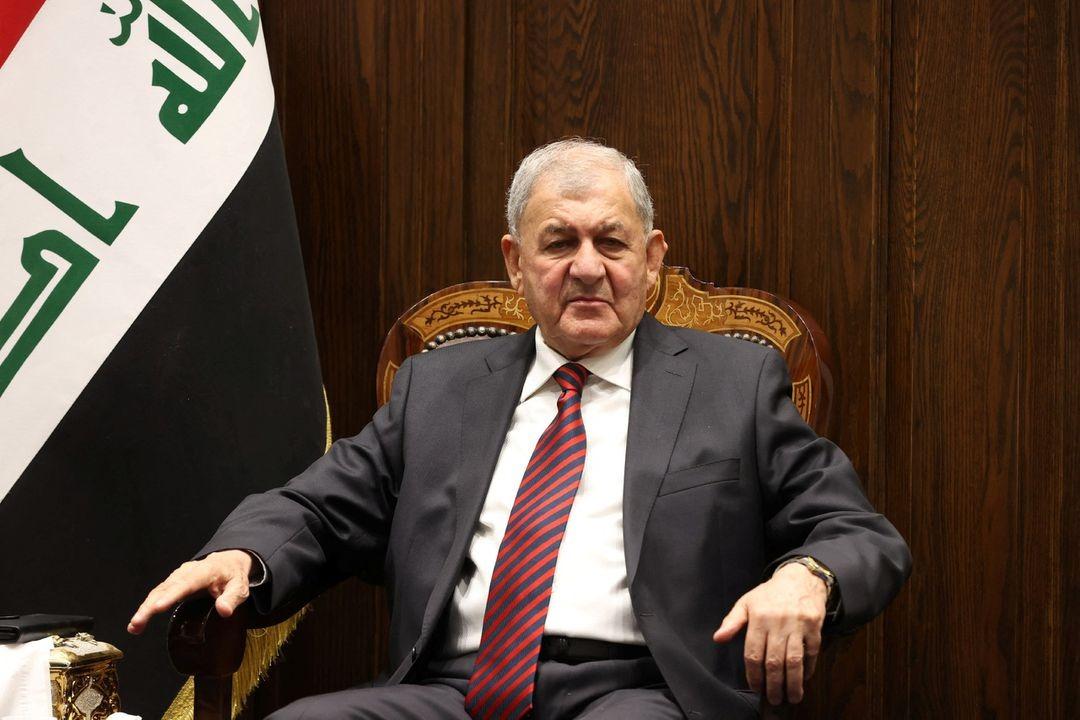
Earlier this month, despite rockets landing close to the parliament building, Iraqi lawmakers have chosen Kurdish politician Abdul Latif Rashid as the country’s next president, clearing the way for the creation of a new administration and putting an end to a year of deadlock.
Following a two-round vote in parliament on Thursday, Rashid succeeded fellow Iraqi Kurd Barham Saleh as president. According to an official in the assembly, Rashid procured more than 160 votes to Saleh’s 99.
https://www.aljazeera.com/news/2022/10/11/iraqi-mps-to-meet-to-elect-new-president
Political chaos unsettled Iraq as the leaders failed to form a government after a year of elections
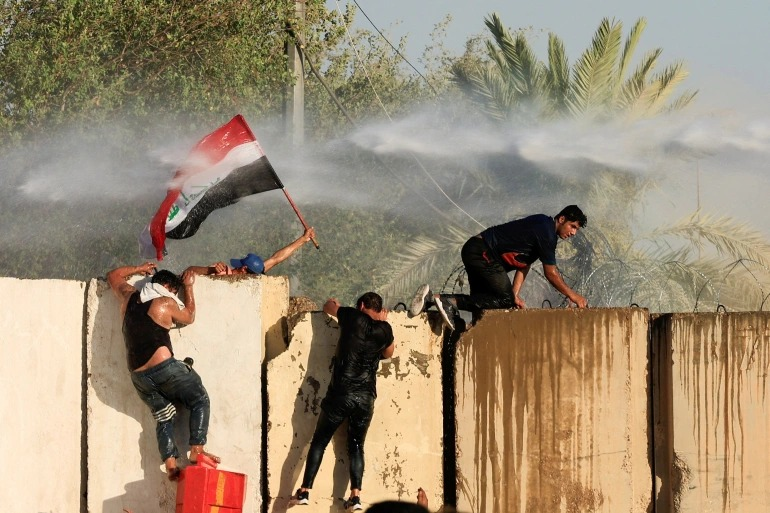
Following widespread demonstrations that broke out in October 2019 to protest systemic corruption, deteriorating infrastructure, and the lack of services and employment for youth, snap elections were held the previous year.
Political leaders in Iraq had been unable to establish a government over a year after the country’s October 2021 legislative elections.
The parliamentary election held in October was officially won by the political coalition headed by Shia leader Muqtada al-Sadr after winning 74 seats. In June, after the parliament was unable to establish a government, Al-Sadr issued an order for his parliamentary group to resign collectively.
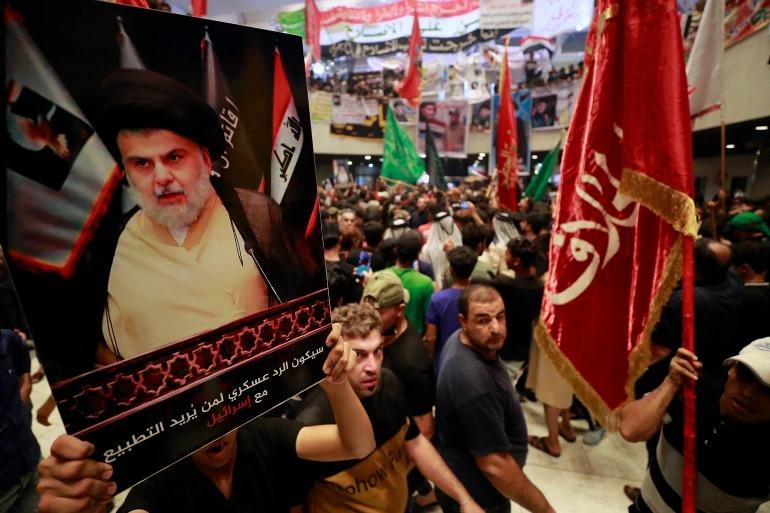
The political crisis in the nation reached its peak in July when protesters, largely Shia supporters of Muqtada al-Sadr, one of the most influential figures in the nation, stormed the Iraqi parliament to voice their opposition to corruption and one of the prime minister contenders.
As the cabinet approved the new government in Iraq, on Thurwith day, Al-Sudani pledged to push through “economic changes” that would revive Iraq’s manufacturing, farming, and private sector.
“The epidemic of corruption that has affected all aspects of life is more deadly than the corona pandemic and has been the cause of many economic problems, weakening the state’s authority, increasing poverty, unemployment, and poor public services.”
Sudani in his address to parliament before the voting.
Additionally, the incoming prime minister promised to provide young Iraqis with “housing and employment prospects.”
As the country struggles with inflation, drought, and a rising humanitarian catastrophe, Iraq now seeks stability and security.
Iraq now has a new president after a year of political unrest. Will he succeed in bringing the nation together and stabilising the government is what remains to be seen?
READ MORE
- Elon Musk dismisses Parag Agrawal, Vijaya Gadde after acquiring Twitter
- Ukraine set for power cuts after air-strikes







